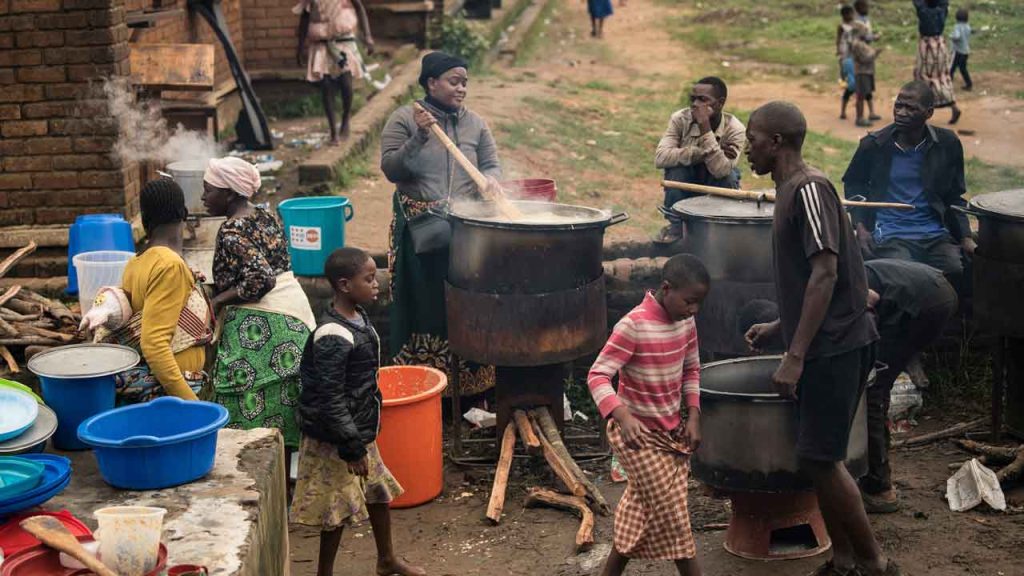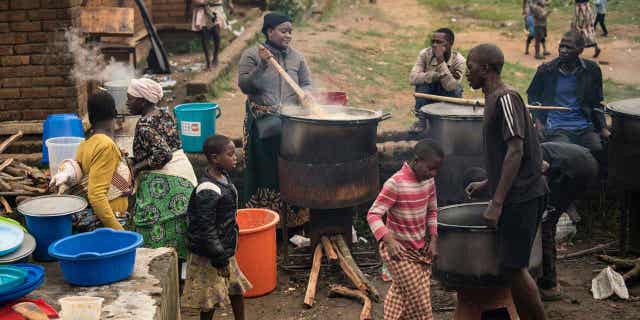
After four days of destructive wind and rain, local communities and relief workers are now confronting the aftermath of Cyclone Freddy which has killed more than 250 people and displaced tens of thousands of others across Malawi and Mozambique and may still cause further damage.
Cyclone Freddy dissipated over land late Wednesday, but weather monitoring centers warned that countries are still vulnerable to flooding and landslides.
At least 225 people have been killed in southern Malawi, including within the financial capital of Blantyre, officials said. Around 88,000 people are still displaced and parts of the region remain inaccessible. Malawi’s president, Lazarus Chakwera, has declared a 14-day national mourning period. In Mozambique, authorities said at least 53 were killed since late Saturday, with 50,000 more still displaced.
Death tolls are expected to rise as authorities uncover the extent of the damage.
CYCLONE FREDDY RIPS THROUGH SOUTHERN AFRICA KILLING HUNDREDS, DEATH TOLL EXPECTED TO RISE
In Malawi, where a cholera outbreak was already ongoing when Cyclone Freddy ripped through the country, deaths from the disease and other water-borne illnesses are also expected to rise.
“We’ve been without running water for the past four days and water will become contaminated,” said Andrew Mavala, executive director of the Malawi Network for Older Persons. “This is a huge concern.”

Community volunteers prepare meals for people who were displaced following tropical Cyclone Freddy in Blantyre, southern Malawi, on March 16, 2023. In Cyclone Freddy’s aftermath, southern Africa has been warned of potential landslides and floods near Malawi and Mozambique. (AP Photo/Thoko Chikondi)
Hundreds of people have been moved to camps but food and clean water is still scarce, Mavala said, with dozens of older people who don’t know how they’ll recover.
CYCLONE FREDDY STORMS THROUGH SOUTHERN AFRICA KILLING AT LEAST 44 IN MOZAMBIQUE, MALAWI
“There’s a feeling that they’ve lived their lives and we must prioritize the young. But they must be helped and treated with dignity,” he said.
Scientists say human-caused climate change has worsened cyclone activity, making them more intense and more frequent. The recently-ended La Nina that impacts weather worldwide also increased cyclone activity in the region in recent years.
Cyclone Freddy has caused destruction in southern Africa since late February, when it pummeled Mozambique as well as the islands of Madagascar and Réunion.
CLICK HERE TO GET THE FOX NEWS APP
Freddy first developed near Australia in early February and traveled across the entire southern Indian Ocean before it bounced around the Mozambique Channel. The U.N.’s weather agency has convened an expert panel to determine whether it has broken the record for the longest-ever cyclone in recorded history, which was set by 31-day Hurricane John in 1994.

 Latest Breaking News Online News Portal
Latest Breaking News Online News Portal




